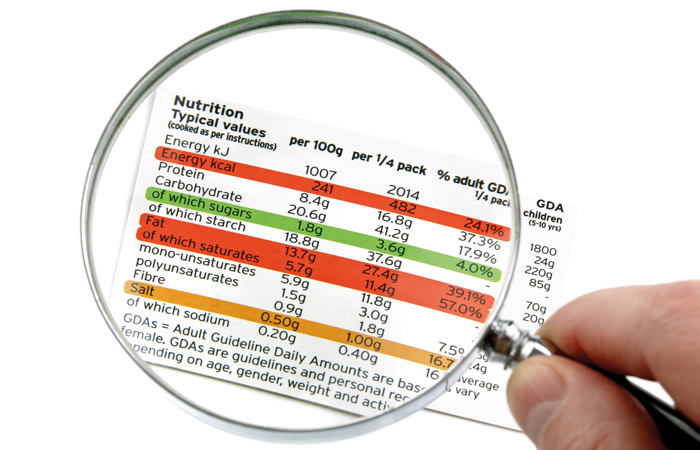In-depth

Healthy heart debate
In In-depth
Bookmark
Record learning outcomes
Knowing what to eat and what not to eat for the benefit of our health can be confusing, especially when there’s conflicting information coming from all angles.
What type of food and how much the average person should eat is one of the most talked about and debated health topics, particularly when it comes to fat.

For nearly four decades, the dietary arch-villain has been saturated fat. But earlier this year, a controversial report in a prestigious journal claimed that the widespread belief that foods containing saturated fats lead to blocked arteries and coronary heart disease is just “plain wrong”.
The authors argued that concerns about low density lipoprotein (LDL) or “bad” cholesterol, have been exaggerated and that the risk of coronary heart disease (CHD) can be reduced by adopting a healthy lifestyle.
The British Heart Foundation (BHF) has hit back, saying that these claims are “unhelpful and misleading”. The charity also says that solid research underpins the current UK healthy eating guidelines, which recommend that people swap saturated fats for their unsaturated counterparts.
So who is right and what advice should you be giving to customers?
A review of studies
The lead author of the report arguing that saturated fat does not clog arteries, which was published in the British Journal of Sports Medicine (BJSM), is Dr Aseem Malhotra, NHS cardiologist, anti-sugar campaigner, founding member of the Public Health Collaboration and advisor to the National Obesity Forum.
The paper is based on reviews of studies conducted on healthy people, which found no association between consumption of saturated fat and deaths from CHD, heart attacks, strokes or type 2 diabetes.
When it comes to prevention of CHD, the authors cite studies that showed no benefit from reducing fat or saturated fat. Even replacing saturated fat with polyunsaturated fat in people with established heart disease was found to have no benefit either.
The report claims that years of focusing on reducing saturated fat has been “misguided” and has driven a market for products claiming to be “low fat” or to lower cholesterol that are of dubious benefit.
Instead, the authors argue that CHD is a chronic inflammatory condition that can be effectively reduced by a healthy lifestyle. They cite research that shows that irrespective of body weight, regular brisk walks might be effective in preventing CHD.
Dr Malhotra’s key message for preventing heart disease is to combine a healthy diet of “real food” – i.e. non-processed food – with walking 22 minutes a day and reducing stress. “The reason we wrote this piece at this time is that the global campaign for decades to lower cholesterol through diet or drugs has failed to curb the pandemic of heart disease,” said Dr Malhotra. “There is an increasing realisation that the current approach to coronary heart disease is fatally flawed.”
Wider thinking
Opposition to the current healthy eating guidelines – first introduced in 1983 to reduce heart disease – is becoming more strident among academics, claims nutrition scientist, Dr Zoe Harcombe.
In another article in the BJSM – Dietary fat guidelines have no evidence base: where next for public health nutritional advice? – she claims that when the Government’s healthy eating guidelines were introduced, they were not based on reliable evidence.
Dr Harcombe argues that the two specific dietary fat recommendations in the 1980s were to reduce saturated fat to 10 per cent and raise carbohydrate intake to 55 per cent of daily calories. But since then there has been an explosion of carbohydrate-related conditions such as diabetes and obesity, which are both risk factors for heart disease.

The flip side
The BHF argues that there is a consensus among world-leading researchers that too much saturated fat can increase the amount of cholesterol in the blood, which can cause fatty deposits to build up in the artery walls and increase the risk of heart attack or stroke. The risk is particularly high for those who have a high level of LDL or “bad” cholesterol and a low level of high density lipoprotein (HDL) or “good” cholesterol. A diet consisting of small amounts of unsaturated fats is thought to help maintain a person’s healthy cholesterol levels.
Tracy Parker, BHF heart health dietitian, says that Dr Malhotra’s paper is an “opinion” piece rather than new evidence. “His arguments do not take account of more recent randomised controlled trials and observational trials looking at what happens when you take saturated fat out of the diet and replace it with healthier unsaturated fat. This is the key message of the current guidelines,” she says.
She adds that one of the problems with gathering reliable evidence is that studies looking at the relationship between diet and health are difficult to conduct because of the need to persuade people to follow strictly controlled diets for 10 or more years.
“However, the link between heart disease and fat is only one part of the picture,” she says. “When the pharmacy team is advising customers, it is important that they should look at the whole diet and lifestyle picture and encourage people to understand that meat is not the only source of good quality protein we can eat in the diet.
“The BHF recommends eating a Mediterranean-style diet, so people should think about swapping saturated fats for unsaturated fats, but also eat more plant-based protein, reduce salt, be more active and watch their weight. We know cholesterol is a risk factor, but having high blood pressure, being inactive and having diabetes also increase the risks.”
Tracy adds that the evidence is that if people make changes to their diet based on the Government’s healthy eating guidance, the “Eatwell Guide”, they will not only reduce their risks of CHD, but also of obesity and diabetes.
Government guidelines
A spokesperson for Public Health England says the Eatwell Guide is based on the recommendations of the Government’s Scientific Advisory Committee on Nutrition (SACN), which come from thorough reviews of the most up-to-date and best quality scientific evidence. “There is good evidence from randomised controlled trials to demonstrate that saturated fat consumption is associated with raising cholesterol levels and increases the risk of cardiovascular disease,” says the spokesperson.
With regard to the recent claims about saturated fat in relation to heart disease, he added that PHE keeps a watching brief on emerging evidence. “If a body of evidence accumulates that suggests a review may be required, the matter would be brought to SACN’s attention.
“SACN is in the process of reviewing the most up-to-date evidence on the relationship between saturated fat and a range of health outcomes. It is hoped that the draft report will be published for public consultation in late 2017,” the spokesperson explained.
So what’s next?
Aisling Pigott, spokesperson for the British Dietetic Association, says: “It is positive that the original research underpinning our healthy eating guidelines is being questioned and it doesn’t necessarily mean that these new arguments are wrong. This is the way the scientific community works.”
She says that saturated fat in itself should not be demonised. However, the problem is that the main source of saturated fat in most people’s diets is not the natural fat in milk or on meat; it comes from processed foods.
“So the first line of advice should be to limit things like processed foods and processed ready meals, which have got lots of extra saturated fat added,” says Aisling. She adds that people should “eat food in its natural form, remove extra fat from meat before cooking and be aware that fat intake is going to have an impact on energy and calorie balance.”
“There are no free foods; there are no danger foods. Everything should be eaten in moderation. Looking at the fat content and saturated fat content of the diet is important, as is looking at overall portion sizes and not overdoing it on sugar or carbohydrate. It’s still okay to eat red meat once or twice a week – that has always been the healthy eating message.”
Neil Stewart, pharmacist and store operating model manager at Well pharmacy, acknowledges that the amount of information available about what to eat and what not to eat can be confusing. He says: “Your customers will read these journals and articles and all the professionals are constantly giving their opinions, whether they are backed up or not. The important thing to remember when you are approached for advice about diet is that pharmacy staff have a huge role to play in giving common sense advice that the public
can understand. When you start talking about saturated fat, polyunsaturated fat or LDL and HDL cholesterol, you lose people.”
As such, providing simple, easy-to-digest information that will explain what people need to know to make an informed decision about their diet is important for pharmacy staff.
“I subscribe to the idea of eating less carbohydrate because, in my opinion, complex carbohydrates and over-processed starches do cause inflammation in the body which is the root cause of a number of diseases,” says Neil. “But having said that, it is also important to eat a diet that is well balanced overall. People’s attitudes to what they eat can be very complex, so I always say listen carefully to what customers are saying and what their concerns are about their diet. Then link your advice on healthy eating to your own personal experience – that way you will create a bond with them. Then recommend that they go away and make just one small healthy change at a time – that way they will be able to stick to each change until it becomes a habit.”
